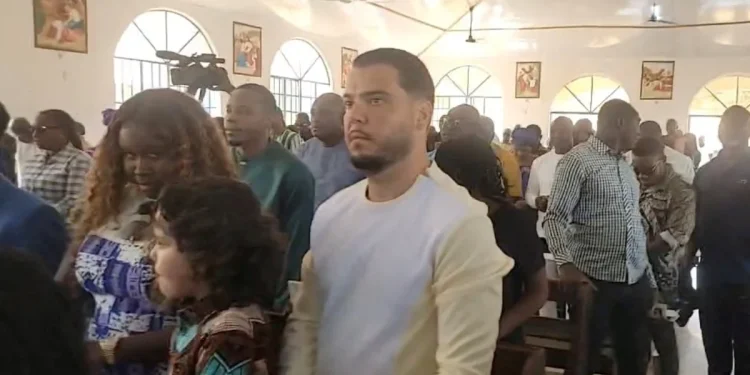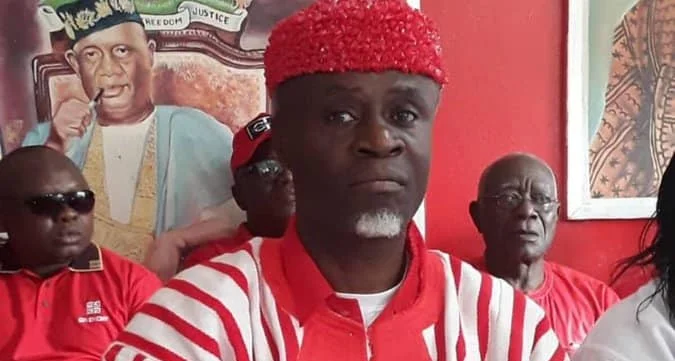By Hassan Osman Kargbo
Nearly two years after President Julius Maada Bio secured his second term in office, citizens across the country are growing increasingly frustrated over the unfulfilled promise of 5,000 jobs. The promise, which was a key highlight of his re-election during the June 24, 2023 election in the country, was aimed at addressing the rising unemployment crisis, particularly among youths. However, the reality on the ground tells a different story as employment opportunities remain scarce in Sierra Leone.
Citizens have been voicing their concerns, demanding answers from the government on when the promised jobs will materialize. Many believe that the government is more focused on crafting policies rather than implementing practical solutions to the unemployment crisis.
Morlai Sesay, a businessman along Rawdon Street in Freetown, expressed his dissatisfaction, accusing the government of making empty promises without fulfilling them. According to him, “This government is only good at making policies, but the reality on the ground is something else. We are almost two years into President Bio’s second term, yet the jobs he promised have not come to pass. Young people are still struggling; and there is no clear roadmap to address this issue of unemployment in the country,” he lamented.
The frustration is not limited to business owners. Ordinary citizens who rely on self-employment and small-scale businesses are also feeling the pinch of the country’s economic hardships. Aminata Dumbuya, a single mother of three, voiced her concerns, calling on the government to take swift action. “This government needs to up their game if they truly want to create the jobs they promised. They have restricted commercial motorbike riders from entering major parts of the city, making it a huge burden for them. My elder and junior brothers rely on commercial riding for survival. If this government removes all the commercial riders from the city, it will create a serious problem for young men trying to make ends meet,” she said.
The government’s restriction on commercial riders, also known as ‘okada’ riders, has left many youths without an alternative means of employment. With limited job opportunities available, those who once depended on riding for a living are now left struggling to find sustainable income sources.
Another frustrated citizen, Ibrahim Kamara, a university graduate, shared his disappointment over the lack of job opportunities in the country. “I graduated two years ago, and I have been job hunting ever since. The government made it seem like jobs were going to be created immediately after the elections, but up till now, nothing has been done. Many young graduates like me are just sitting at home, waiting for opportunities that will never come. The government needs to be serious about job creation instead of giving us false hope,” he stated.
Fatmata Jalloh, a market vendor, also expressed her dismay, emphasizing the economic strain on small businesses due to high unemployment rates. “When people don’t have jobs, they don’t have money to buy things. My sales have dropped because many of my customers who used to buy in bulk can no longer afford it. The government needs to do something about this situation before things get worse,” she said.
The growing frustration among citizens highlights the urgent need for the government to act on its job creation promises. Despite policy announcements and economic initiatives, tangible job opportunities remain scarce, leaving many to question whether the government’s pledge will ever be fulfilled.
The youth, who make up a significant portion of Sierra Leone’s population, are particularly affected. Many of them hoped that President Bio’s administration would address their employment concerns, but as time passes, their hopes are fading. Civil society groups and activists have also started to call for greater accountability, urging the government to provide a clear timeline on job creation efforts.
While the government has defended its efforts, citing economic challenges and global uncertainties as barriers to job creation, citizens remain unconvinced. Many argue that the administration should have a concrete plan in place to tackle unemployment rather than relying on external factors as an excuse.
As the second year of President Bio’s second term unfolds, the pressure continues to mount. Sierra Leoneans are demanding action, not just words. The government must now take decisive steps to address the employment crisis before frustration turns into widespread discontent.
For now, the question remains: When will the promised 5,000 jobs become a reality in Sierra Leone?













